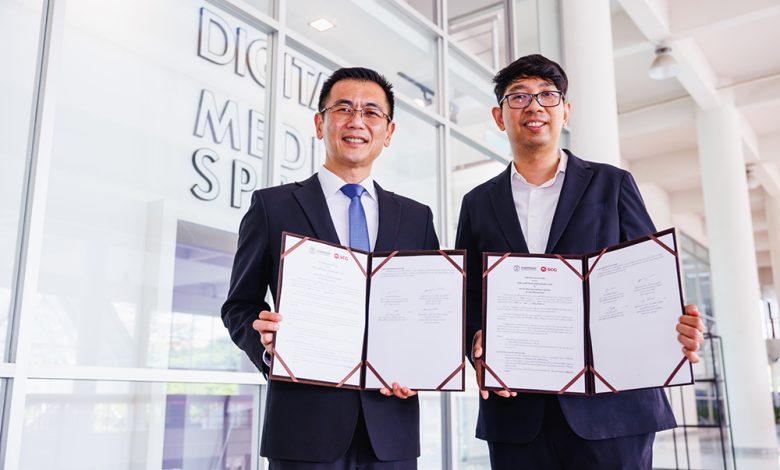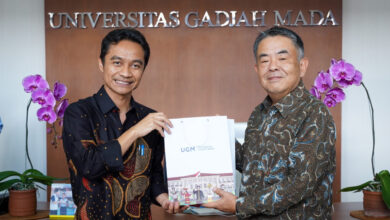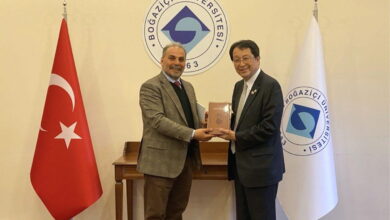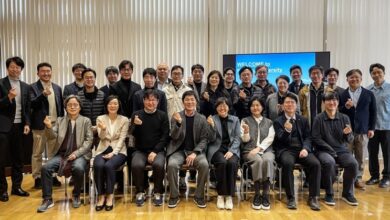Thammasat joins forces with SCG for academic cooperation, aiming to drive the country towards a Net Zero Society

The cooperation between the Faculty of Architecture and Planning, Thammasat University and SCG Cement-Building Materials Co., Ltd. supports the common goal of driving Thailand toward a Net Zero Society, with the main objective of developing academic cooperation in the dimension of the built environment which gives importance to the production of personnel and knowledge bodies that meet sustainability. The cooperation consists of an activity to create a cooperation plan for academic development under the theme of “Pathway to Net Zero Building” in order to educate and disseminate the guidelines for Net Zero Energy Building design, as well as guidelines on the design for well-being, technology and building energy saving innovations, innovative products, and environmentally friendly construction as a model for future cooperation that mobilizes significant resources. Both in terms of knowledge, skills, expertise from the education sector and the business sector for wider benefits.
Asst. Prof. Arsalaha Suwannarit, Dean of the Faculty of Architecture and Planning, Thammasat University said that the role of educational institutions in seeing the future, creating innovation, and being a part of pushing society towards sustainability. It is a crucial mission of the Faculty of Architecture and Planning, Thammasat University. The faculty focuses on research and development to create solutions to solve new problems on the challenges of a new, sustainable context that continues to have a creative impact on society and the country. The future world will be driven by three important driving forces: Well-being and Quality of Life, Circular Value and Sustainability, and Digital Solution and Integration, especially the dimension of Circular Value and Sustainability which are important challenges in the world that require collaborative cooperation in solving climate change problem, where the construction industry plays an important role in creating a positive, constructive impact.
“The Faculty of Architecture and Planning, Thammasat University as one of the leading institutes in design and built environment recognizes the importance of its role in cooperation with the business sector to drive Thailand towards its goals of net zero greenhouse gas emissions according to the policy framework that has been propelled to become an urgent national and global agenda by cooperating academically with SCG Cement-Building Materials Co., Ltd., an ASEAN leader in the innovation business for sustainable construction. This is regarded as a good starting point for pushing the aforementioned policies into concrete implementation. And it is an example of cooperation between educational institutions and the private sector in driving the country toward sustainable development,” Asst. Prof. Arsalaha said.
Mr. Wachirachai Koonamwattana, Head of Smart System Solution Business, SCG Cement-Building Materials Co., Ltd., mentioned that this cooperation is in line with the SCG’s Sustainable Development Guidelines according to the ESG Guidelines by SCG Cement-Building Materials. As a manufacturer of construction materials and building solutions, the company notices the importance of reducing the carbon footprint in buildings, as referring to building carbon emission statistics, it contributes to more than 39% of all carbon emissions in the world. Therefore, it is regarded as an urgent and substantial agenda to develop measures and methods to reduce carbon emissions continuously.
“This collaboration between SCG, by SCG Building and Living Care Consulting, a specialist company in consulting, and designing buildings for sustainability and well-being, and SCG Smart Building Solutions, a provider of building energy solutions, aims to bring knowledge to collaboratively expand further with the Faculty of Architecture and Planning, Thammasat University to develop the Pathway to Net Zero Building Guidelines, disseminate to the public and continuously drive the development of Net Zero Building in the country. The results of the study will be used in collaboration to start implementing various pilot projects according to the plan,” Mr. Wachirachai concluded.




